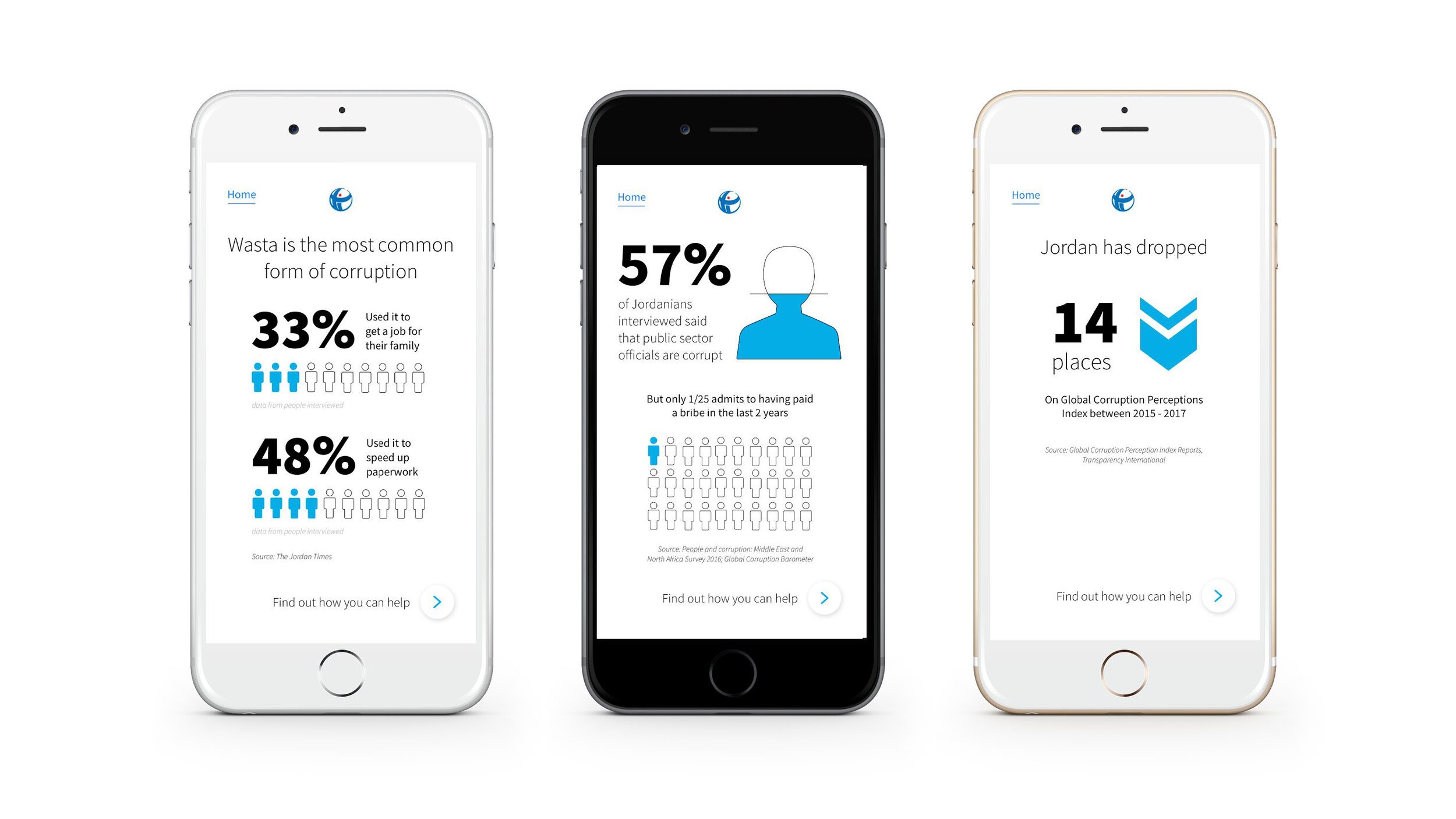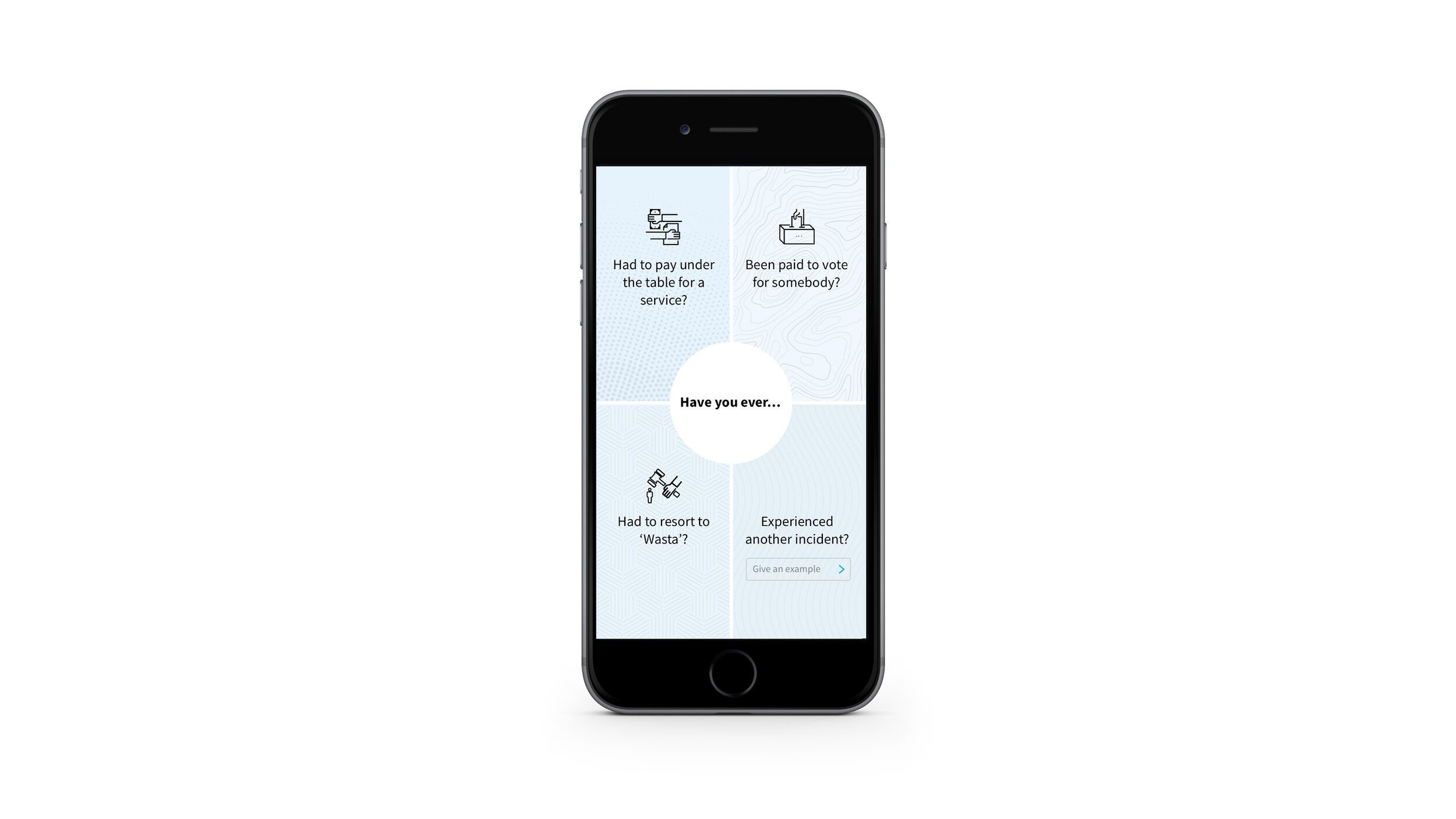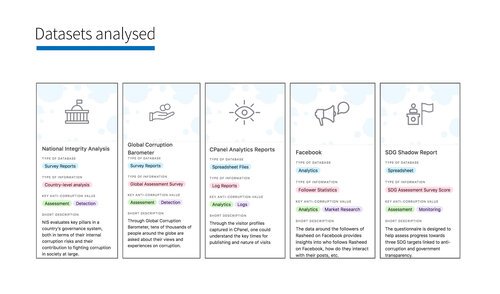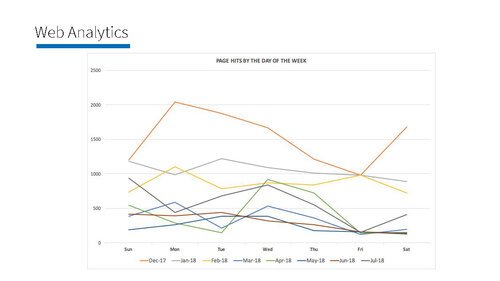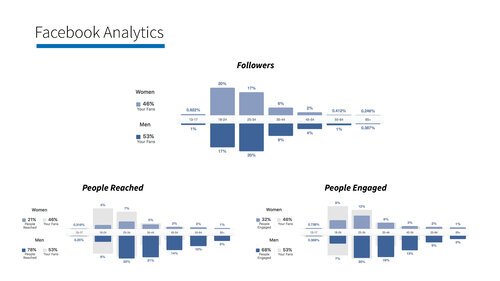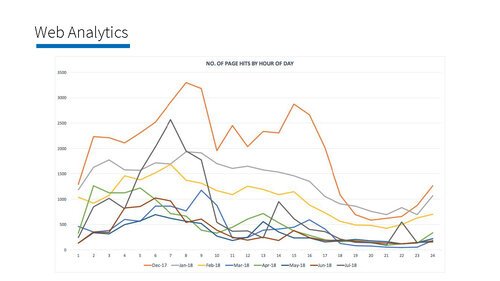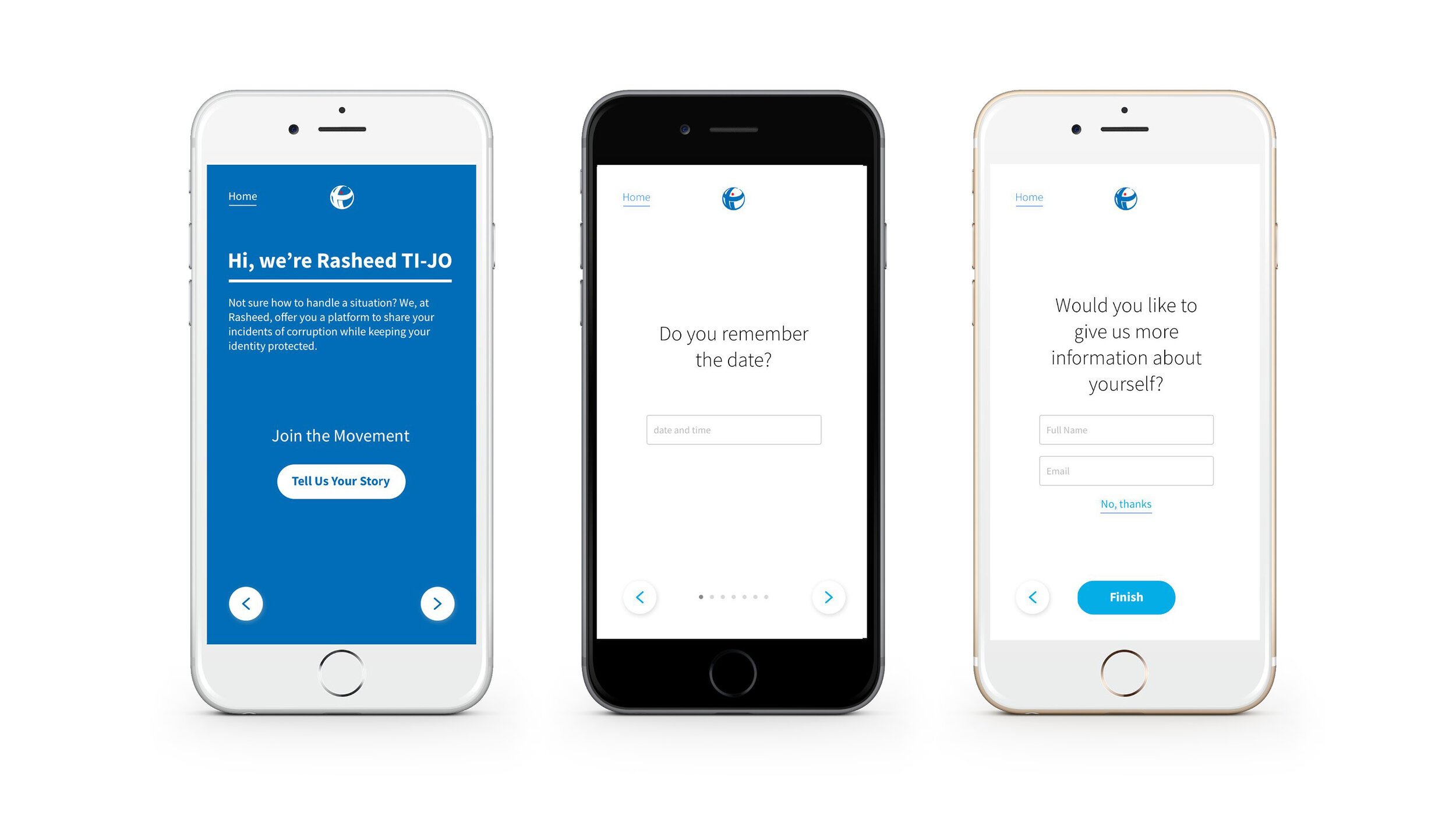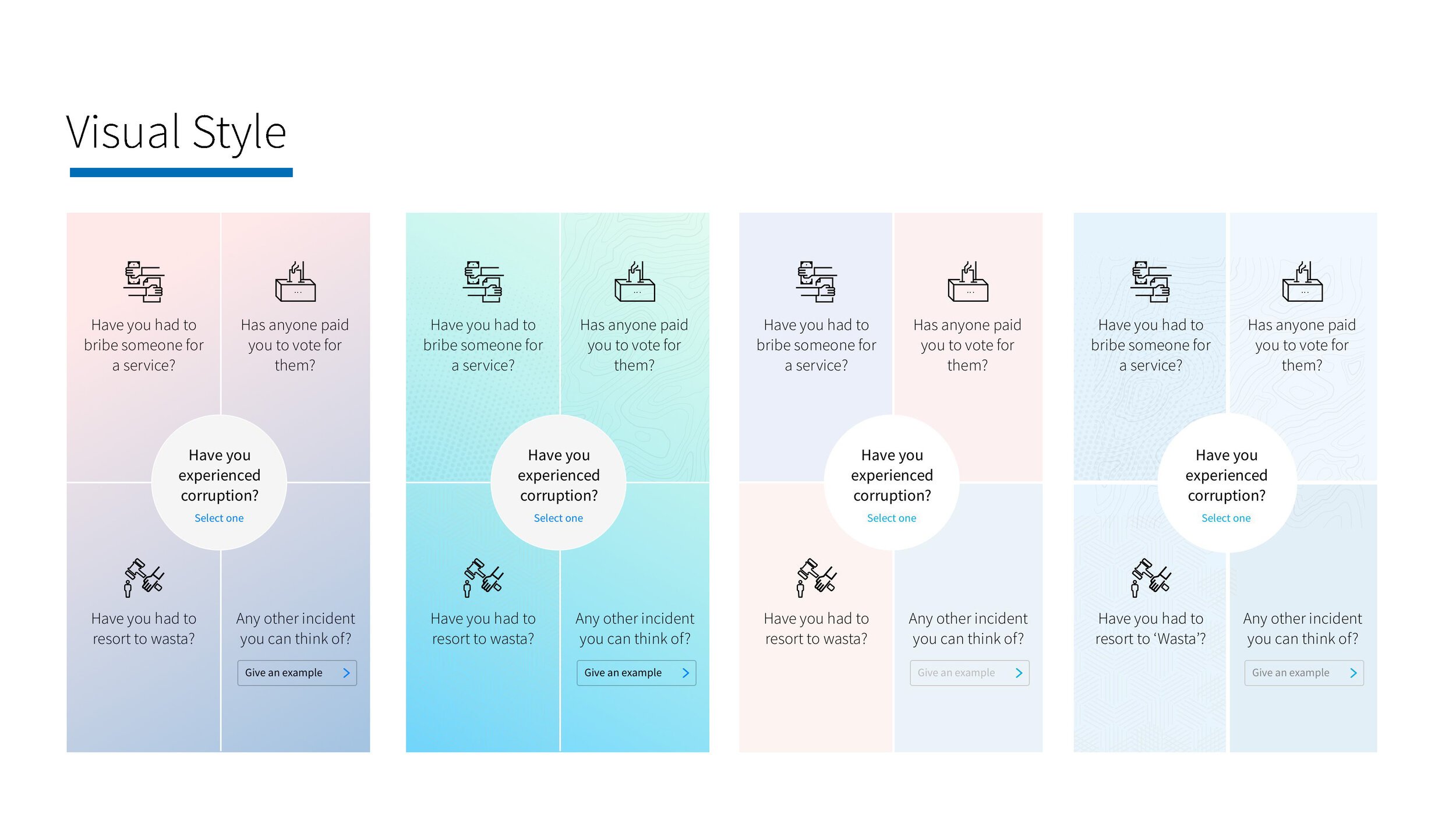Designing a Mobile App to Document Corruption
An anti-corruption app designed to help Jordanian citizens document corruption
Overview
Rasheed for Integrity and Transparency is a local anti-corruption not-for-profit organisation that was launched in 2013. It’s the Jordanian chapter of Transparency International (TI). Rasheed’s projects aim to strengthen the pillars of integrity, transparency, and accountability in Jordanian institutions. Rasheed’s work includes the production of research, studies, evaluations, training tools, and reporting manuals. It also includes social awareness, lobbying, and advocacy campaigns.
Corruption is an obstacle for private citizens and businesses operating in or planning to invest in Jordan. One of the most common forms of everyday corruption is called ‘Wasta’ (middlemen) and is present throughout the country. Jordan’s Penal Code criminalises corruption, but the government is not implementing the law effectively. Corrupt public officials and high-ranking civil servants are rarely prosecuted. All this leads to Jordanians feeling that corruption is just a part of the system and that little can be done to change it.
Design Challenge
Transparency International's Jordanian chapter, Rasheed, wanted a public facing tool to show the impacts of corruption on citizens and capture new data. Rasheed is trying to combat the feeling of apathy the public feels when it comes to corruption, but is finding it hard to connect with the public in its outreach work, especially when it comes to collecting reports about corruption cases from citizens. Rasheed came to Data4Change to find a different way of presenting its data and getting citizens to care about the corruption they face. I was working at Data4Change with a team that includes a front end developer, a project manager, a data researcher, a visual designer, and two people representing Rasheed as stakeholders.
Process
Stakeholder Interviews
We conducted interviews with employees of the Ministry of Justice in Jordan to find out more about their experience with private and public sector corruption cases, and requested statistics on corruption in order to have a better understanding of the challenges involved and what parties are affected.
Data Exploration
The National Integrity Analysis (NIS), which is a Transparency International survey report and country-level analysis that evaluates key pillars in a country’s governance system, both in terms of their internal corruption risks and their contribution to fighting corruption in society at large. The Global Corruption Barometer, which is a Transparency International dataset about global views and opinions on corruption, the results of which are drawn from surveys of tens of thousands of people, the Sustainable Development Goals Report and finally analytics of current user patterns across Rasheed TI-JO’s website, their anti-corruption reporting tool, and their social media accounts.
Deliverables
The team combined two of their strongest concepts, an interactive quiz about personal experiences around corruption and an informative section filled with data and statistics about how Jordan is doing when it comes to government transparency and corruption. Once a person has interacted with the data and the info presented they are introduced to Rasheed and invited to report corruption.

